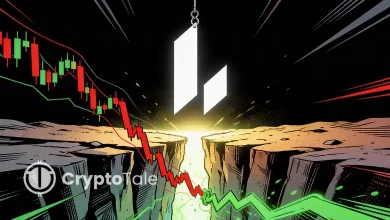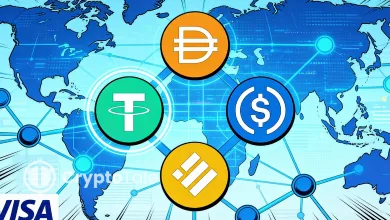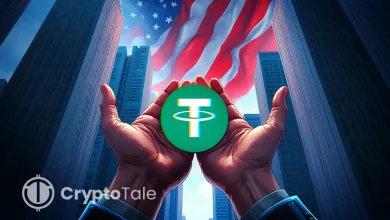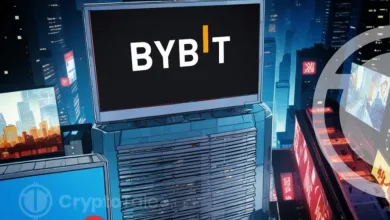Santander’s OpenBank Launches Retail Crypto Trading in Germany
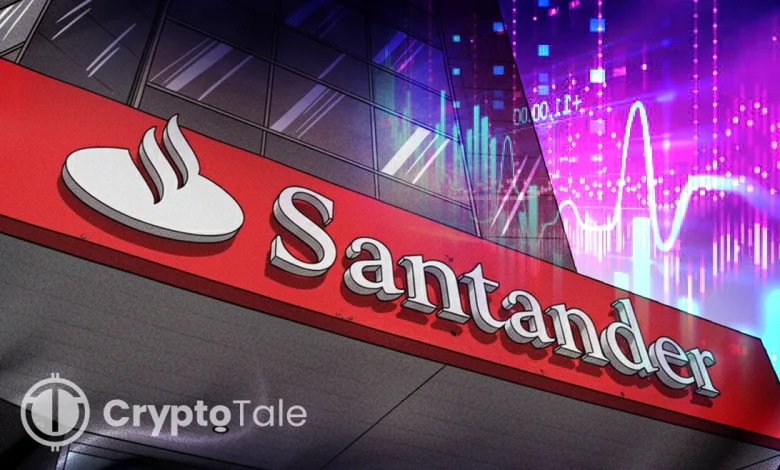
- Santander’s Openbank debuts crypto trading in Germany with BTC, ETH, LTC, POL, and ADA.
- Germany emerges as Europe’s testing ground as banks expand regulated crypto offerings.
- Rivals BBVA and Deutsche Bank advance digital asset strategies alongside Santander’s push.
Banco Santander’s digital arm Openbank launched retail crypto trading in Germany on Tuesday. This is a pivotal move by a leading European bank into digital assets. The rollout allows customers to buy, sell, and hold Bitcoin, Ether, Litecoin, Polygon, and Cardano directly within their accounts. Moreover, in the coming weeks, Openbank plans to expand its service to Spain, positioning itself within Europe’s latest Markets in Crypto-Assets (MiCA) regulatory framework.
Regulated Trading Under MiCA
The launch introduces crypto access alongside traditional investments, eliminating the need for third-party platforms. Customers benefit from MiCA’s investor protections, which standardize custody, trading, and disclosure rules across the EU.
According to Coty de Monteverde, Head of Crypto at Grupo Santander, the move addresses rising customer demand for digital assets within a regulated market. Openbank charges a 1.49% fee on trades, with a minimum of €1 per transaction, and does not impose custody fees.
Over the coming months, it intends to expand supported tokens and add crypto to crypto conversions. This step shows MiCA’s role in enabling cross-border offerings under one framework, allowing institutions to scale services more easily across the bloc.
Germany as a Testing Ground
Germany was chosen for the initial rollout due to its competitive retail banking sector. Earlier, DZ Bank partnered with Börse Stuttgart Digital to pilot crypto services across 700 cooperative banks in 2024.
In 2025, Deutsche Bank proposed to introduce custody solutions with Bitpanda and Taurus by 2026, reviving its digital asset ambitions. Additionally, the Sparkassen-Finanzgruppe confirmed plans to integrate crypto trading for nearly 50 million customers through its Sparkasse app by mid-2026.
These developments show Germany’s role as a proving ground for regulated bank-led crypto adoption in Europe. Santander’s decision to begin there aligns with broader trends of traditional banks adapting to digital demand under MiCA.
Related: Non-MiCA Stablecoins to Be Delisted by Binance: Report
Competitive Sector and Strategic Outlook
Santander’s Openbank expansion comes as rival European institutions deepen their own digital strategies. BBVA already offers crypto services in Switzerland and Turkey and is awaiting regulatory clearance in Spain.
In France, Societe Generale issued a euro-backed stablecoin through its crypto arm, while Deutsche Bank’s DWS Group is working with Flow Traders and Galaxy Digital on a similar euro-pegged project. Santander itself has explored blockchain for years, launching its Ripple-powered One Pay FX payments app in 2018 and investing in distributed ledger initiatives like Fnality International.
Openbank, with more than two million clients across Spain, Germany, Portugal, the Netherlands, the U.S., and Mexico, now extends this strategy into retail crypto trading. By using digital assets alongside stocks, funds, and ETFs, the bank aims to retain younger investors who might otherwise turn to fintech competitors.
The expansion also coincides with a global backdrop of changing regulations and demand. In the U.S., President Donald Trump’s open endorsement of crypto and the passage of the GENIUS Act have led to large banks, including JPMorgan, Citigroup, and Bank of America, to explore stablecoins and retail offerings.
Meanwhile, Europe’s unified framework through MiCA provides banks like Santander with the regulatory clarity needed to expand crypto services. Santander’s Openbank launch shows how large European banks are moving digital assets into mainstream finance under MiCA. Starting in Germany and expanding to Spain, the service indicates both regulatory alignment and competitive necessity.
With rivals like BBVA, Societe Generale, and Deutsche Bank also scaling their offerings, the sector for European retail crypto adoption is entering a new phase where banks and fintechs compete directly under common rules.

